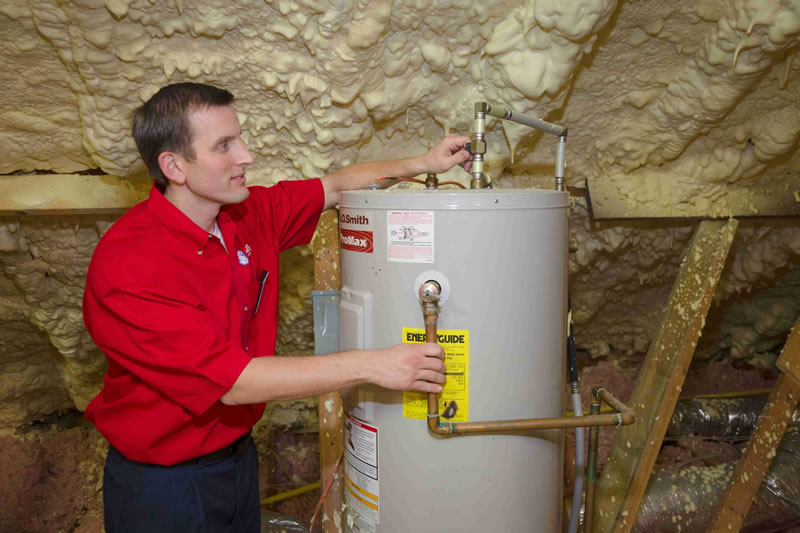When your water heater breaks down, your day can quickly turn into a nightmare. Understanding the common types of water heater repairs can help you prepare for potential issues and make informed decisions. Today, Mr. Rooter Plumbing highlights four common types of water heater repairs.

The anode rod is a component that protects a water heater against corrosion by attracting corrosive elements in the water. This metal rod runs down the center of a water heater’s tank and attracts minerals and sediment. The anode rod decays over time and may need replacement to continue protecting the tank from corrosive elements. Luckily, there are telltale signs that indicate it’s time for anode rod replacement. You may notice rusty water, visible corrosion on the metal rod, and unusual noises coming from the water heater. Replacing a failing anode rod is a job that should be left to a qualified plumber because it’s quite technical and requires specialized tools and knowledge. If you need help with anode rod replacement, contact the experts at Mr. Rooter Plumbing.
Is your water heater leaking from the top? If so, the common culprits include loose connections or a faulty temperature and pressure relief valve. If you’re a handy person and have basic plumbing skills, you can tighten loose connections using an adjustable wrench. However, fixing a faulty T&P valve should be left to an experienced plumbing service because of the risks associated with DIY repairs gone wrong.
Another common reason behind a leaking water heater is a corroded hot water tank. Left unaddressed, a corroded hot water tank eventually develops cracks that allow water to escape. If you’ve noticed puddles of water at the base of the unit, there’s a good chance you have a leaking hot water tank. Water heater leaks should be fixed as quickly as possible to prevent water damage and potential safety hazards. Get in touch with a reputable plumbing company for water heater replacement if you’ve noticed signs of corrosion.
This is one of the essential preventative maintenance tasks that will improve your water heater’s efficiency and extend its lifespan. It’s recommended to flush your water heater at least once every year to remove sediment buildup at the bottom of the tank. Draining a water heater is a simple process that does not require specialized skills or tools. All you need to do is connect a garden hose to the drain valve and open the valve to release the water. Let the water run until it’s clear. Close the drain valve and turn on the heater once you’re done with the flushing process. If the water doesn’t seem to clear up, you may need to call a local plumbing repair service to troubleshoot your plumbing.
An electric water heater consists of a heating element whose job is to heat the water when electricity runs through it. Just like other components, the heating element can fail due to age, physical damage, mineral buildup, and corrosion. If your water heater isn’t producing any hot water or the water temperature keeps fluctuating, call a trusted plumber for heating element replacement. Replacing the heating element can restore proper functionality, eliminate safety hazards, and save energy.
Contact Mr. Rooter Plumbing today for water heater repair services. Whether you’re facing issues with the hot water tank, heating element, electrical connections, or anode rod, we’ll resolve the problem efficiently.
Water around the base of a toilet gets attention fast. After all, no one wants to see moisture spreading across the bathroom floor. In many cases, that water signals a…
Let's be frank: Everything costs more than it did two years ago. Your grocery bill is higher, gas prices bounce around like a yo-yo, and if your water heater just…
If you live in Florida, then you know how fast a sunny afternoon can turn into a heavy downpour. In a low-lying state where the water table sits high and…
Your plumber just delivered the news: your home needs repiping. Those galvanized steel pipes that have served faithfully for 60 years are finally giving up. Or…